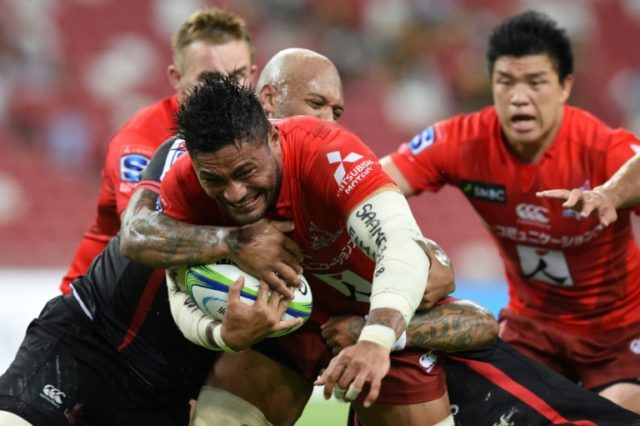Tokyo (AFP) – The decision by Super Rugby organisers to give Japan’s Sunwolves the boot six months before the country hosts the World Cup has sparked concerns about the sport’s growth prospects in Asia.
The axe will fall on the Tokyo-based franchise after next season following a chastening first three years in the southern hemisphere’s elite competition.
Last week’s announcement by Super Rugby organisers SANZAAR comes as a humiliating blow to Asian rugby as Japan gears up to host the continent’s first World Cup later this year.
“It is clear that this is going to cause quite a lot of damage,” admitted Sunwolves CEO Yuji Watase after a 37-24 defeat by South Africa’s Lions at the weekend.
“It’s obvious we had a responsibility to expand rugby in Asia. We have tried to do that and to an extent I believe we achieved that aim — but in pure economic terms, the reality is not that simple.”
The Sunwolves were brought into Super Rugby in 2016 to tap into new Asian markets but SANZAAR said it wasn’t prepared to bankroll the perennial whipping boys after Japan’s rugby board withdrew financial support.
Another reason for establishing the Sunwolves was to create a de facto Japanese national team — after Japan stunned two-time champions South Africa at the 2015 World Cup.
In reality, many Japan players stayed with their Top League teams, while others such as World Cup hero Ayumu Goromaru and Japan captain Michael Leitch initially opted to play for other Super Rugby sides.
While Top League teams, backed by the corporate might of companies such as Kobe Steel and Panasonic, can attract rugby greats like Dan Carter and Sonny Bill Williams, the Sunwolves were trawling for Super Rugby rejects in the run-up to their inaugural season.
– Empty seats –
Critics subsequently called for the team to be kicked out, pointing to their woeful record and the fact they rely so heavily on imports — with players from New Zealand, Australia, South Africa, Fiji, Tonga, Georgia and South Korea having pulled on the red shirt.
That volume of foreigners, dissenters argue, defeats a key objective for including the Sunwolves in the first place — to help grow rugby in Asia.
The Sunwolves divide their home fixtures between Tokyo — where they largely sell out — and fly-away games in Singapore, where they don’t come close.
The swathes of empty seats in Singapore underline the scale of the challenge in expanding rugby in football-mad Asia.
Japan Rugby Football Union chairman Noriyuki Sakamoto called on Sunwolves fans to follow Top League teams or the Japan national side, who have maintained the feel-good factor since the 2015 World Cup.
Organisers for this year’s tournament are confident the impressive form the “Brave Blossoms” have shown under Jamie Joseph will boost ticket sales, and expect a large turnout for Asia’s debut World Cup.
“We feel like this will be the most impactful Rugby World Cup we’ve ever had,” tournament director Alan Gilpin told AFP in a recent interview.
“We will have taken the sport forward more than we would have done in England or New Zealand or France,” he added, pointing to 4.5 million ticket applications, 70 percent of those from Japan.
“There are a couple of hundred thousand kids playing rugby now in Japan that weren’t there a year ago, let alone five years ago. We are somewhere new, the opportunity is to leave a bigger legacy in this World Cup than we’ve ever done before.”

COMMENTS
Please let us know if you're having issues with commenting.